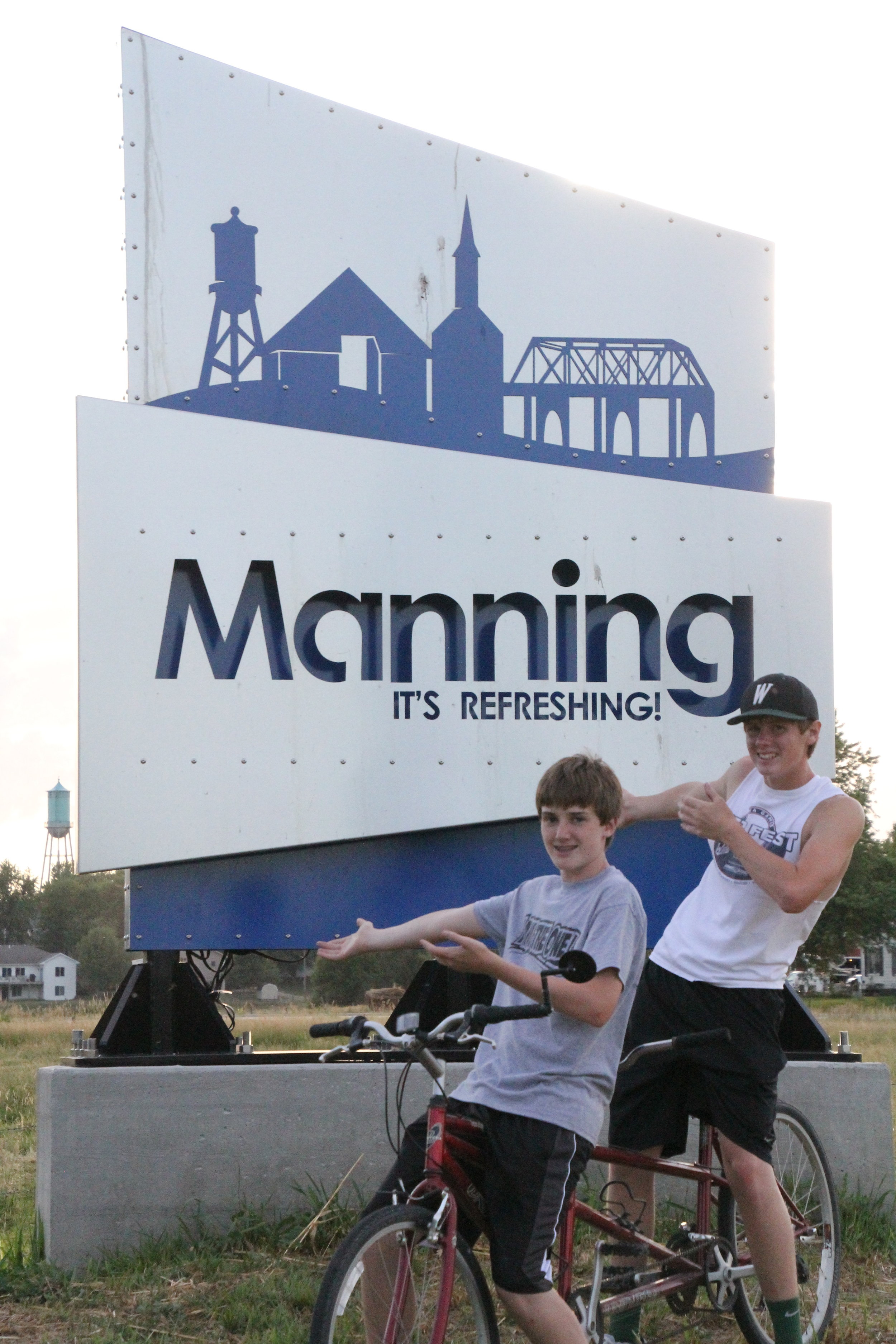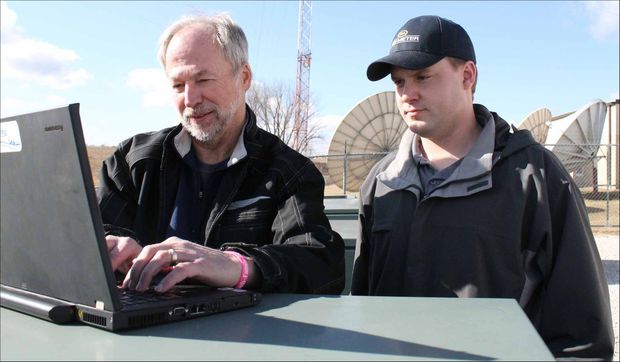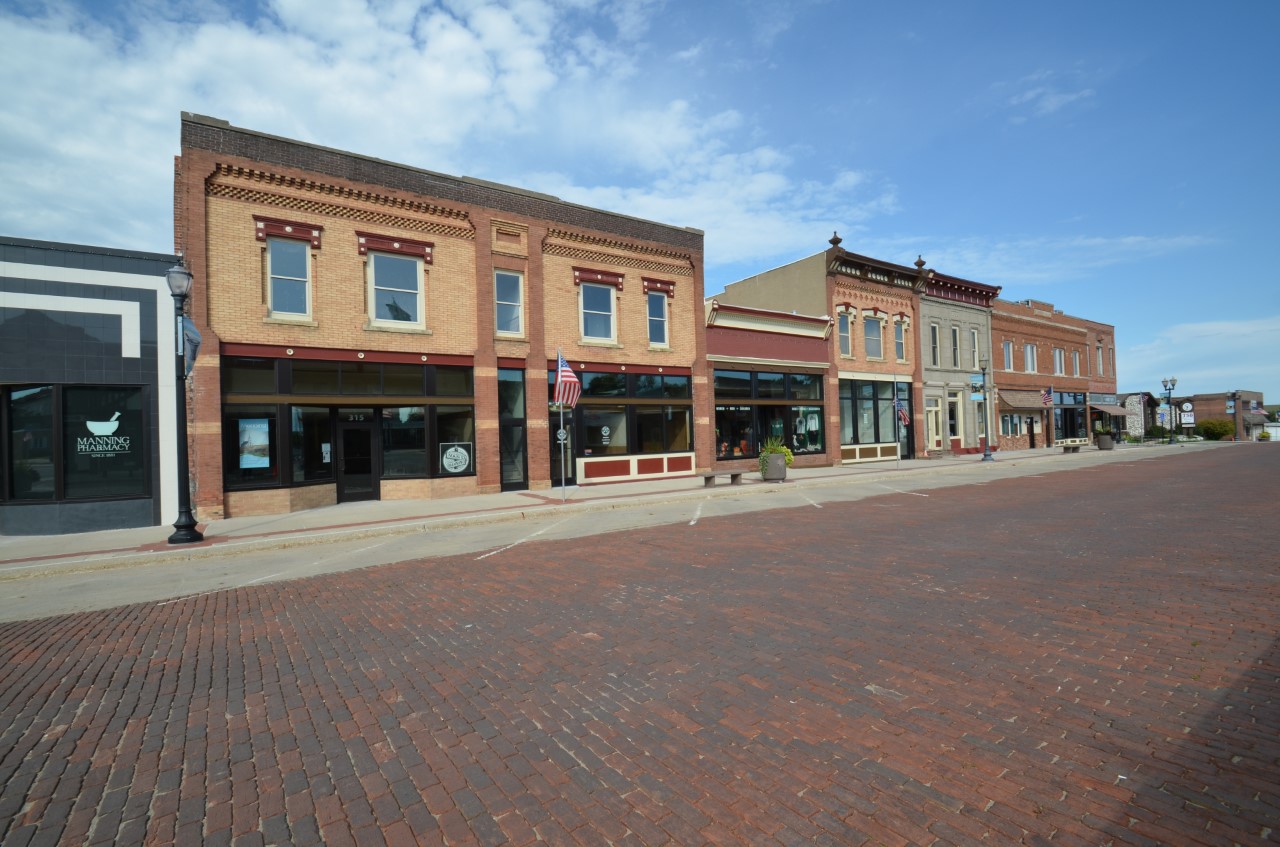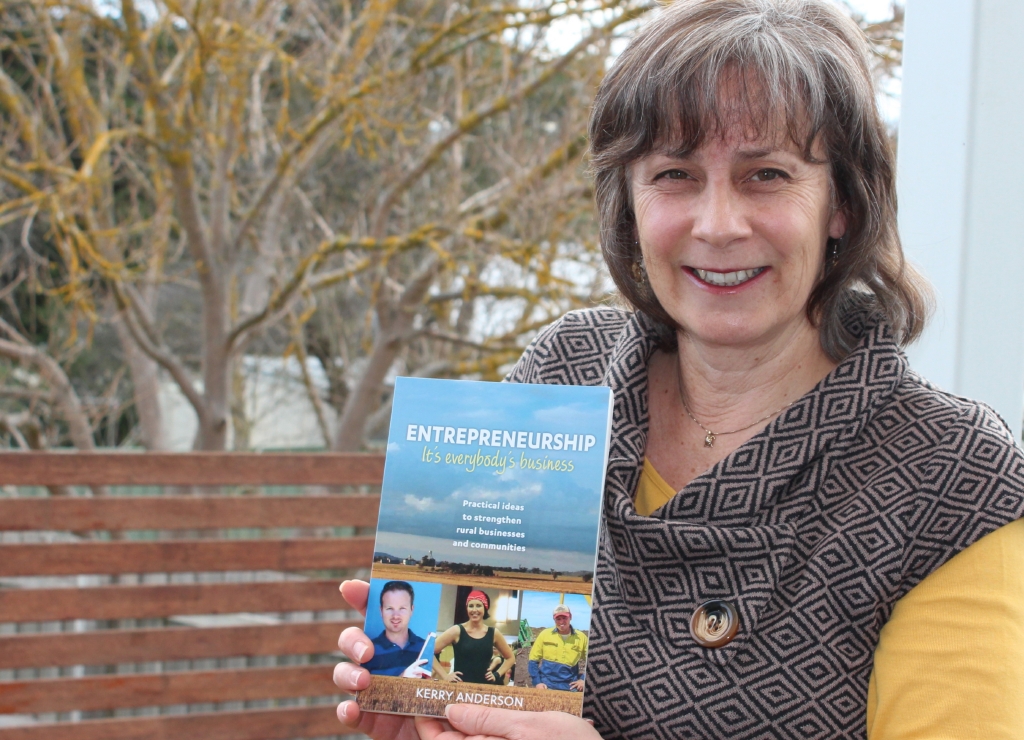Manning
RURAL TOWNS FIGHTING BACK Series by Kerry Anderson
WHEN the tiny agricultural town of Manning in Iowa, United States, maintained its population of 1,500 in the 2010 Census – it actually rose by three people - there was a collective sigh of relief. Avoiding the path of many other rural towns with declining populations Manning’s community is determined to fight back.
Chatting with Ron Reischl, Chair of Main Street Manning Business Improvement Committee, I gain some insight into how Manning is approaching its epic battle. There is much to commend in the way of initiatives but Ron pays tribute to two key factors; a high rate of volunteerism and no ‘turf wars.’
‘There is a sense of volunteerism and willingness in Manning that is generations long,’ says Ron who returned to his home town as a retiree and now volunteers his own expertise and time to local boards.
By way of example he explains how Manning obtained a much-needed hotel for the community two years ago.
‘In typical Manning style five individuals put together their own informal committee to work out how to go about it. They invested $5,000 in a market analysis report, presented it to three hotel companies and got one to agree to build a new hotel at a cost of $2.2 million. Not only that, they helped to raise the $790,000 local investment required,’ says Ron. ‘They made it happen.’
When it comes to demonstrating the collaborative nature of the community Ron points to Manning being awarded the inaugural Small Business Community of the Year award in 2015.
'There are no turf boundaries.'
‘The City is very involved in economic development, as are the Main Street Manning Board, Chamber of Commerce, and Manning Betterment Foundation. There are no turf boundaries,’ he stresses.
A prime example given of this was when Jaime England, a physical therapist, was looking to return to her home town of Manning. She wanted to open up a new business and identified a vacant building owned by the Foundation which was subsequently offered to her at a purchase price too good to refuse. The Main Street Board secured a grant and the City’s Economic Development Agency provided a loan with very low interest to help renovate the building to working order.
‘We all work well together,’ Ron says with pride.
Like many rural communities, Manning is very aware of the pattern for young people to leave town for college and careers. It is when they marry that they think about returning home so that their children can also enjoy a clean, green rural life.
When asked what would be the community’s greatest achievements to date, without hesitation Ron lists the main street revitalisation, enlargement of the childcare centre, and the building of a new hospital and hotel.
‘As part of a main street revitalisation in 2015 we renovated 17 store fronts and changed the look of our entire central business district which is three blocks long.’ $800,000 was attracted for this purpose via federal and Manning City grants and private investment. Ron observed that this then spurred additional investment by the owners to fix up the interior of their stores.
With child and health care hot topics in rural Australia I am impressed that such a small community as Manning has both.
‘With 75 to 100 job openings in the district we knew that child care was a major roadblock to growth,’ says Ron. Not only did the Betterment Foundation build the original childcare centre in 2002, it was expanded in 2016 to provide a total of 84 places.
Built three years ago, their new $22 million hospital, is one of the three major employers in town whose employees use those child care facilities.
Agriculture related industry is the top source of jobs followed by the hospital and school. The community is working hard to attract more people to return or relocate to Manning to fill these vacancies.
Being a Certified Connected Community by the State of Iowa is a major step forward in this regard. Manning was the first town under 5,000 population to be awarded this status in 2015. Several Wi-Fi hotspots have been placed throughout the town and high-speed internet connected to major industry, the school and hospital, all of which are considered essential for young people to stay, or return to Manning.
‘It helps that the City owns all the utilities,’ Ron admits, ‘but we still have to do more.’
One gets the sense that resourcefulness is alive and well in this community. They not only partner locally but with larger regional organisations.
'Students bring in new ideas.'
Manning regularly attracts College of Design students from Iowa State University for specific projects. Students helped design new signage as part of the main street revitalisation project.
‘Students bring in new ideas and, if it meets the curriculum, it gives them something meaningful to work on,’ Ron explains.
During another college related project a student photographing the old railroad trestle commented that it was a great place for a park. A community meeting confirmed this observation and, in typical Manning fashion, it is happening.
‘We decided on an adult orientated park because we already have one for children but of course whole families will still use it. Instead of swings where children need supervision there will be rocks and logs to climb over within view of their parents who will be making use of the barbeque, sand volleyball and bag games facilities.’
Encouraging young leadership is another key factor in their community moving forward.
‘We aggressively recruit the younger generation to participate in leadership positions,’ Ron admits. On the Main Street Manning Board, there are five men and five women. Seven of the board members are under the age of 40.
Currently another ad-hoc volunteer committee is shaping a social media campaign targeted at the three closest cities. ‘We will be inviting young people to experience the town for a weekend which will help increase revenue and hopefully get them to consider the advantages of our laid-back lifestyle,’ says Ron. ‘Our branding is Manning It’s Refreshing’ and our social media tags will be #ExperienceManning for a day, a week or a lifetime. #ManningItsRefreshing’
Funding of these initiatives is supported by multiple sources. In this instance the $5,000 marketing campaign, comprising a coordinator and paid advertising, is being funded by the taxes on overnight stays generated by the hotel. The Main Street Manning Board is certified as part of a Federal program that allows it to access grants, and local taxes are raised through the city specifically for economic development. A Revolving Loans Fund is also administered by the City providing low cost funds to individual businesses, and the Manning Betterment Foundation is well placed to respond to local needs including economic initiatives.
Volunteers are driving Manning's initiatives.
Despite all this access to funding support, the fact remains that resourcefulness is just as important as resources. Volunteers are clearly driving Manning’s initiatives.
The question remains, do they feel as if they are making a difference?
‘It’s hard to quantify but we know that our alumni are moving back,’ says Ron. ‘Housing is another issue with our last new home built in 2014, but currently we have seven new houses being built,’ he adds with a hint of optimism.
Ron and fellow residents are also very aware of the importance of supporting and encouraging entrepreneurs.
‘Even just one successful entrepreneur, supported by a collaborative culture, can reverse population decline and enable a small town to not only survive but thrive,’ says Ron. ‘Puck Custom Enterprises grew from one farmer to a service and manufacturing company that now employs more than sixty people in Manning. Many young people work here because of this one business.’
Business and community clearly go hand in hand. The efforts of the volunteers contribute to the liveability of the town for business owners and their employees.
As the next United States Census fast approaches in 2020, signs are that there may be a healthy population growth to support all of Manning’s collective volunteerism.
You can follow Manning's progress via Main Street Manning Facebook page and www.manningia.com/
Read about other rural towns fighting back:
Author of ‘Entrepreneurship: It’s Everybody’s Business,’ Kerry Anderson works with small businesses and rural communities to help them embrace new opportunities. READ MORE




